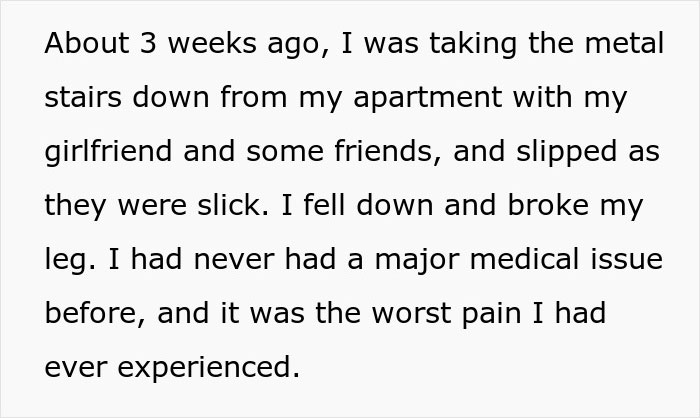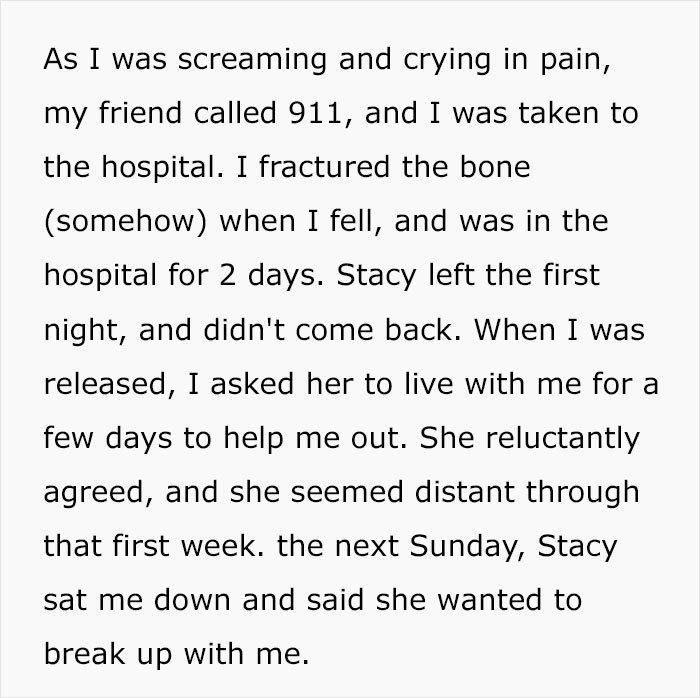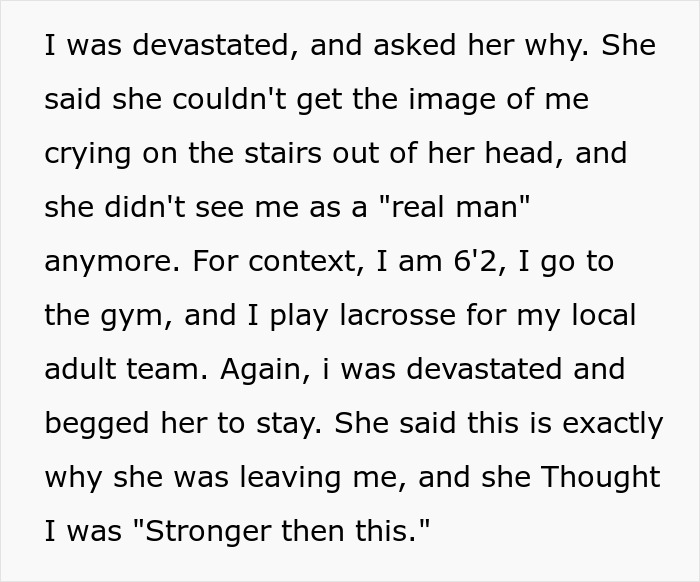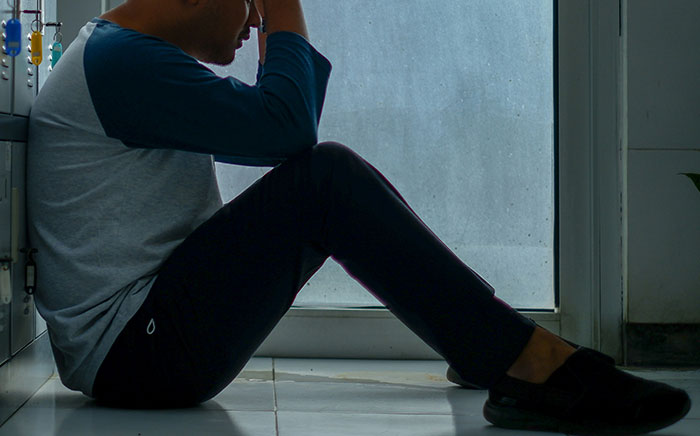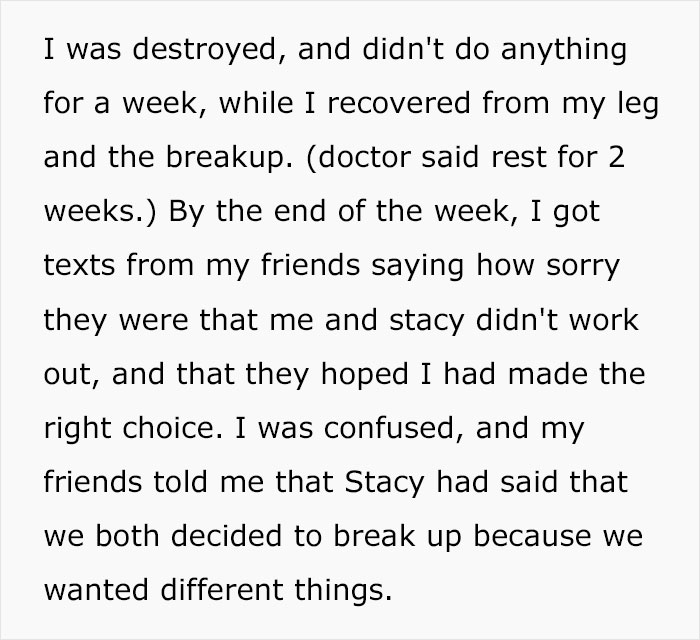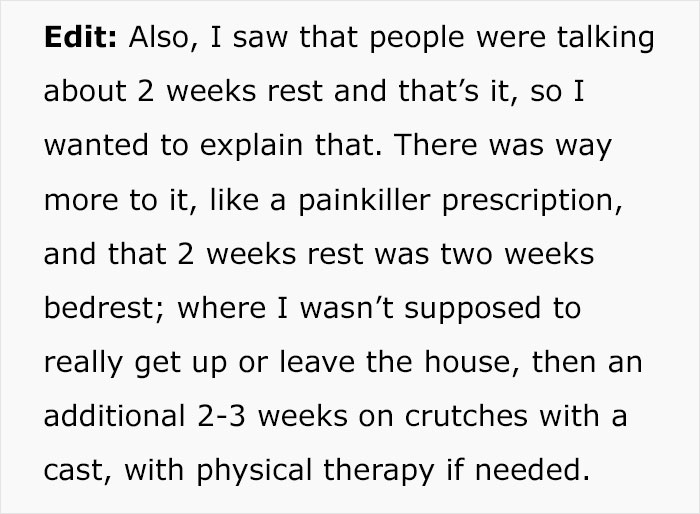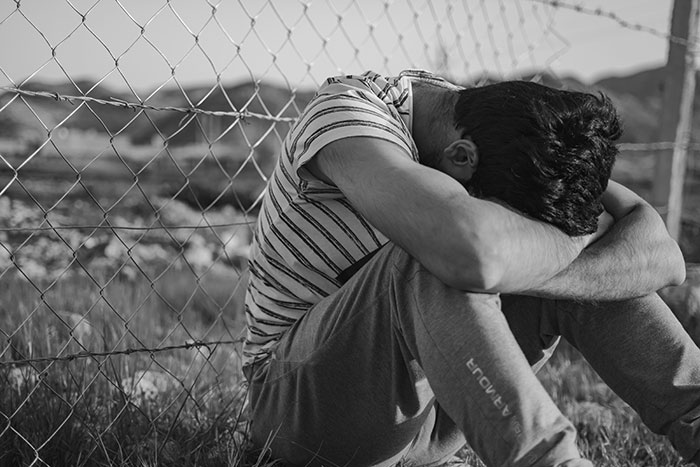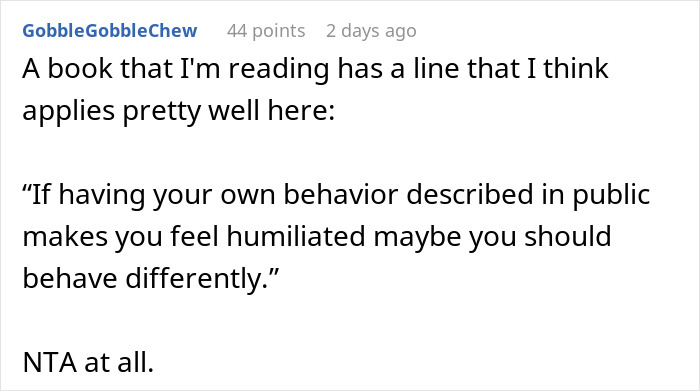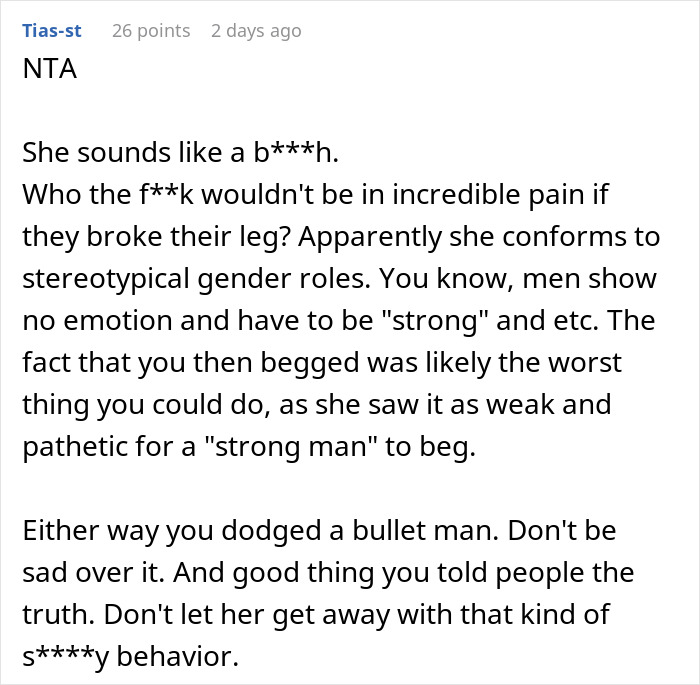Unfortunately, this man found himself in a relationship where his girlfriend wouldn’t have been ready for the “in sickness and in health” part. When he injured his leg, she claimed to be unable to continue the relationship because she no longer saw him as a man. She then lied to their friends that the decision to break up was mutual and got mad when he told them the truth. Confused about whether he was the bad guy in this situation, the boyfriend sought opinions from the Internet folk.
Breaking up with a person right after they break their leg can be pretty heartless
Share icon Image credits: karrastock (not the actual photo)
But lying to mutual friends about the reason for the breakup might be even more insulting
Share icon Share icon Share icon
Share icon Image credits: Yosi Prihantoro (not the actual photo) Share icon Share icon Share icon Share icon Image credits: MyGFSexist
Gender stereotypes hurt men more than we’d like to admit
In much of online discourse, sexism only exists towards women. In reality, men can fall victim to gender stereotyping just as often as women. This story is a prime example of that: the girlfriend telling her boyfriend she can no longer see him “as a man” is a pretty sexist thing to say. Scratch that, that’s a really sexist thing to say. Stereotypes like “men don’t cry” and that they’re “sissies” or “wimps” if they do are hurtful not only on a personal but on a societal level as well. In essence, it doesn’t allow men to express their feelings or reach out for help if they have mental health problems. In the U.S., for example, men are four times more likely to take their own life than women. Gender Equality Law Center writes that these kinds of stereotypes “can cause us [to be] disoriented in our perceptions.” Those who stray from the established gender norms risk discrimination and unequal treatment. Society penalizes men for being vulnerable or reaching out for help. Studies show that when male leaders show weakness or ask for help they’re seen as less competent and perceived as being of lower status. Share icon Image credits: Mojtaba Ravanbakhsh (not the actual photo)
Crying and showing weakness in other ways shouldn’t make a person any less of a man
The “boys don’t cry” stereotype is perhaps the most harmful. It damages men’s self-worth and belittles their self-image. Fiona Forman, MSc in applied positive psychology, told The Irish Times that, sadly, this stereotype still persists. “Although this view of masculinity is thankfully changing, it is still hard to shake off the entrenched cultural values that we have all absorbed. In some ways, we may feel we are protecting boys from the judgements of others and preparing them for the so-called ‘real world’ by telling them not to cry from a young age.” “If we tell boys not to cry, they may begin to suppress, avoid or shut down these emotions, as they are not encouraged to express them.” What happens when boys and men suppress those feelings? In the long term, they might be unable to manage these emotions and, perhaps, even unable to form close, honest, and open relationships. In reality, crying is a very healthy expression of sadness or disappointment. A healthy stream of tears can detoxify your body, help you self-soothe, dull pain by releasing oxytocin, and restore emotional balance. A good sobbing session might even improve your mood, as you’re taking in quick breaths of cool air, which regulates and lowers the temperature of your brain. Share icon Image credits: Tom Pumford (not the actual photo)
There is no one definition of what it means to be a man
Princeton University writes that most men don’t agree with what “being a real man” means. They do, however, learn to adjust their behavior to what they’re taught is the right way for them to act during childhood. Harry’s and University College London (UCL) surveyed 5,000 American men in 2018 and asked them what values they aspired to. The majority named honesty as the characteristic they’d like to have. Athleticism and adventurousness were the least desirable. 52% of the respondents said that mental health for them is “very important.” This possibly marks a shift in how men understand what it means to be “a man.” “American men understand the importance of their mental health, even above physical health. They are ready to talk, and they want to improve their happiness,” the report’s conclusion claims. And that’s evident when we listen to what modern men have to say about masculinity. In 2020, The Guardian did their The State Of Men series, where they asked their readers hard questions about modern masculinity. The project demonstrates how differently men understand what it means to be a man and how there is no one right answer. “Masculinity is about the one who protects and who provides. The one who opens jars, climbs ladders, kills bugs and defends his family with his own life,” reader Ali Vonal from the US told The Guardian. However, others understood masculinity in less rigid terms. “I think the main challenge for men today is the difficulty that comes with shedding old-fashioned ideas of masculinity,” another reader from the UK, Matt, wrote. “I think it’s so difficult for men today to retrain their brains and behaviours, because so many of us are brought up to act a certain way.” “‘Masculinity’ should disappear from our lexicon. We should be thinking in terms of becoming human beings,” Ric Doringo from the US wrote. “I encourage [my son] to nurture those parts of him he thinks are most important, and to always be OK with himself. Frankly, I want the exact same thing for my daughter.” Share icon Image credits: Christian Erfurt (not the actual photo)
The boyfriend gave a bit more context in the comments
But the general consensus was still NTA
Share icon
Anyone can write on Bored Panda. Start writing! Follow Bored Panda on Google News! Follow us on Flipboard.com/@boredpanda!


